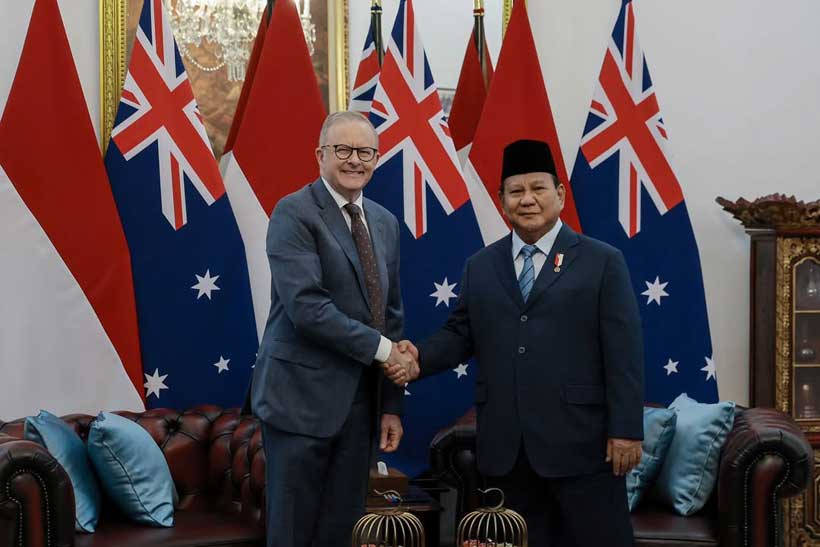Towards Strategic Partnerships
Towards Strategic Partnerships
By Mehmet Enes Beşer
Australian regional ambition resembles the manner the nation considers Indonesia, a country that holds a key position in the regional geopolitical constructs of Southeast Asia. The relations among the two neighbor nations stretch for decades and constitute economic, security, and diplomatic relations. The more the world goes internationally, regional inclusion of Indonesia by Australia becomes more important.
Historical Premise on the Bilateral Relations
Australia and Indonesia established diplomatic relations on 27 December 1949 when the country gained independence. It has seen periods when the relationship has strained and periods when it has been collaborative and has been shaped by regional trends and local policies. Importantly, the Indian Ocean tsunami in 2004 witnessed a remarkable Australian response in the form of a A$1 billion Indonesia tsunami relief assistance package and subsequent support by the state governments and private donations totaling over A$150 million.
Economic Cooperation and Overall Partnership
Australia–Indonesia economic relations were strengthened after the approval on July 5, 2020, by the Indonesia–Australia Comprehensive Economic Partnership Agreement (IA-CEPA). The agreement entails the abolition of customs duties on nearly all the goods traded in the two nations and simplifies the rule of investment to allow Australian businesses easier access to the markets in Indonesia. The pact broadens the quota for the Indonesians who hope to do Australian vocational studies and engenders more people-to-people links.
Australia-Indonesia development partnership long-term vision aims at improving the prosperity, stability, and resilience of Indonesia and strengthening close relations between Australia and Indonesia. The partnership allows Australia to reinforce regional objectives for a stable and prosperous Southeast Asia region.
Align and Cooperate Strategy for Security
Security cooperation is a major plank of the Australia-Indonesia relationship. The Lombok Treaty signed in 2006 constitutes the basis for bilateral security cooperation and covers defense, law enforcement, counterterrorism, and maritime security. The Defence Cooperation Agreement has also been signed by the two countries in the month of August 2024 to further reinforce the security relationship. The treaty-level agreement enables practical interoperability and armed forces cooperation for the spheres such as maritime security, counterterrorism, assistance and disaster relief support for the purpose of humanitarian assistance needs, logistics support, education, and training.
Joint military maneuvers such as the Keris Woomera exercises conducted in the province of East Java are the measure of the cooperation. The exercises among some 2,000 troops, warships, fighter jets, helicopters and tanks aim at regional security and mutual comprehension. They show the close military understanding between Australia and Indonesia and the strengthening Defence Cooperation Agreement.
Diplomatic Interaction and Domestic Power Dynamics
In diplomacy, Australia and Indonesia engage heavily in many multilateral forums such as the United Nations, Asia-Pacific Economic Cooperation (APEC), G20, the East Asia Summit (EAS), ASEAN Regional Forum, the Indian Ocean Rim Association (IORA), and the MIKTA grouping (Mexico, Indonesia, Republic of Korea, Türkiye, and Australia). Such reciprocal participatory endeavor demonstrates the converging strategic interests and regional stability promotion by the two nations.
The upgrade of the bilateral relationship to the Comprehensive Strategic Partnership in 2018 had been befitting and allowed for the regular exchange of high-level consultations through the channels including the Foreign and Defence Ministers’ 2+2 Meeting and the Annual Indonesia-Australia Leaders’ Meeting. The forums assist both nations to collectively meet regional challenges and harmonize strategic interests.
Educational and Cultural Interchanges
Education and cultural exchange assist to solidify bilateral relations. Such programs as the New Colombo Plan involve the Australian students to study in Indonesia and forge people-to-people connections and knowledge. Even the students who study in Australia from Indonesia assist to provide culture and economic vibrancy to Australian educational institutions.
The recent recruitment by Charles Darwin University of Dr. Nathan Franklin as Associate Vice-Chancellor (AVC) Indonesia reflects attempts to strengthen educational cooperation. The position seeks to strengthen relations with Indonesia through research partnership and encouraging Indonesian students to Australia. Such initiatives reflect the priority placed on educational exchange while fostering good bilateral relations.
Conclusion
The position held by Indonesia cannot be replaced in Australia’s regional view as the key to economics, security, and diplomacy. The bilateral relationship has transformed into a complex alliance, considering the both nations’ goals and obstacles.
From the economic perspective, IA-CEPA created space for growing investment and commerce and reciprocal development. However, the two nations should be watchful and ensure the economic interactions are sustainable and balanced and correct imbalances that should automatically arise.
From the security standpoint, the dynamic defense cooperation exhibits reciprocal support for regional stability. The alliance must be adaptive and be able to encompass new threats such as cyberattacks and transborder crime. Constant dialogue and military exercises will be vital in maintaining a very effective security alliance.
Diplomatically, Australia-Indonesia relations through multilateral channels support regional influence in Southeast Asia. This necessitates careful management that appreciates Indonesia’s regional leadership and statehood and does not suggest leadership.
Educational and cultural exchanges at the very heart of fostering reciprocity. Investment in such forums for soft power will deepen the relationship through the creation of goodwill independent of political and economic trends.
In managing the complex regional politics, Australia needs to be mindful that Indonesia will be both the new regional leader and a regional partner. Australia can present the region as a stable, inclusive and prosperous Indo-Pacific region by presenting the regional vision and mission to Indonesia.

















Leave a Reply